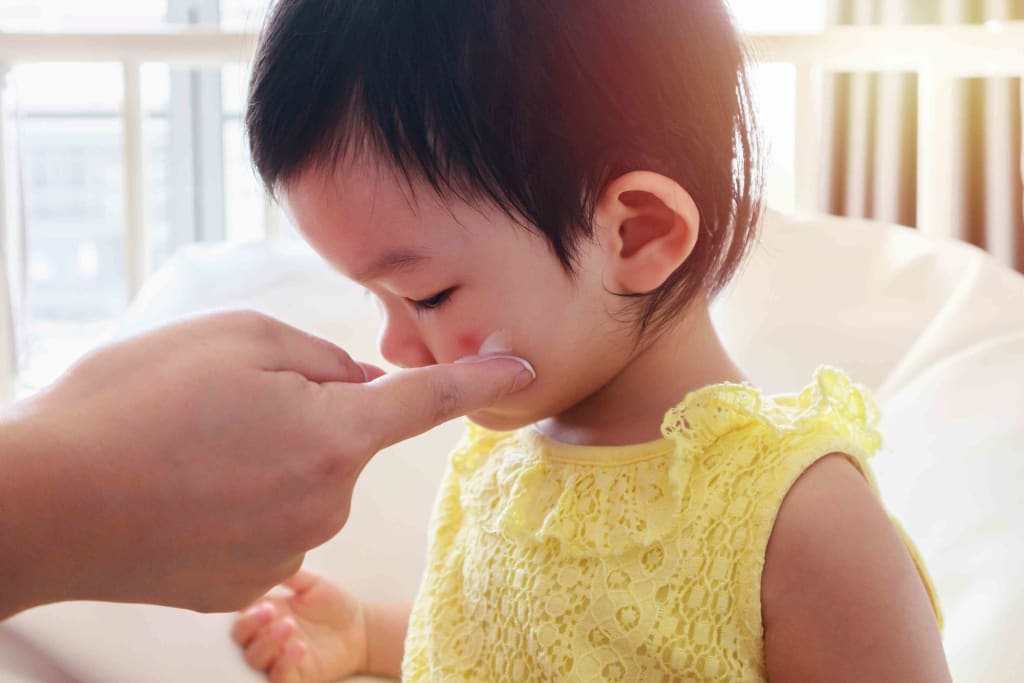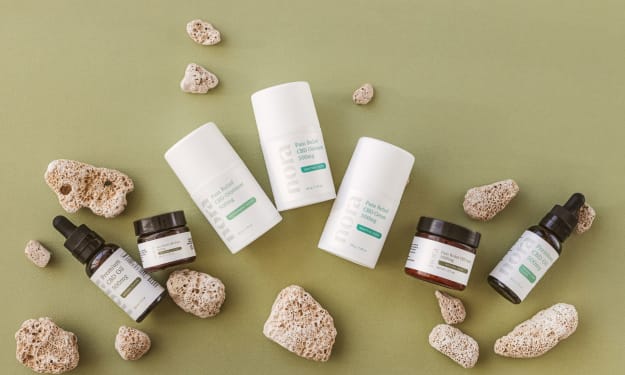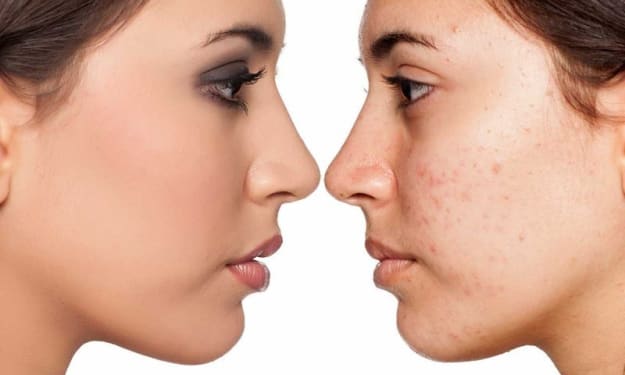What Is Childhood Eczema and How Can You Treat It Safely?
Eczema cream helps to treat the skin care dermatology compounds problems

A newborn baby has this delicate and supple skin that is oh-so-soft and enjoyable to snuggle with. However, many babies may develop a skin condition cream eczema within the first six months, which creates concern for most parents. You might see the development of severe redness, unexplainable rashes, or even scales on the babies' faces or scalps. Even toddlers and schoolgoing young kids can develop similar issues. This skin condition is called eczema. Although it is common, seeing your kid battle any bothering skin conditions can be disturbing.
Most parents do not have any clue about what happens when eczema is diagnosed out of nowhere. Further, when eczema shows up suddenly, and you realize there is no cure, it can bring about anxiety. The worries related to the disease and your child's appearance are justifiable; however, equipping yourself with knowledge can truly help, particularly with available treatment choices like vitamin B12 eczema cream.
Prevalence of Childhood Eczema
As per the National Eczema Foundation, atopic dermatitis (the most well-known type of skin inflammation) influences upwards of 13% of kids under 18 in the United States. Even though eczema can impact individuals of all ages, the issue is more common among infants and toddlers, and the issue might get better with age. Most children with eczema will foster symptoms by five years of age. In any case, eczema in children develops within the first six months after birth.
Symptoms of Childhood Eczema
The signs and symptoms of eczema symptoms can range widely depending on which body part has been affected and even the age of the child. This is an inflammatory skin condition that may develop in different ways, sometimes depending on the child's age. For example, eczema in the baby may develop on the cheeks, scalp, or face. Whereas the dermatology compounding pharmacy at 6 to 12 months old may usually develop on the elbows and knees. However, some of the most prevalent symptoms include:
The symptoms of eczema can appear as dry patches in babies on the face, usually around the mouth, chin and lips. The baby may develop a cradle cap, a form of eczema in which scales develop on the baby's scalp. As the child progresses in years, affected areas might be close to folds of the skin, including the bend of knees and elbows, wrists, or behind the ears.
Common Triggers of Eczema in Children
What exactly causes eczema is yet unknown, but the researchers have pointed out several factors that may be involved in risking the development of a skin condition in a child. For instance, children whose parents have a history of asthma, atopic dermatitis, or hay fever can be at high risk. Therefore, genes are considered to play a role in the progress of this condition. Those suffering from eczema are inclined to have increased nitric oxide levels in the body.
Some of the most prevalent eczema triggers in babies and children include:
Mostly, children do not exhibit any signs of atopic dermatitis until they are exposed to any environmental triggers that further seem to trigger the immune system, and the skin cells start acting abnormally and may flare-up.
Sometimes, preventing babies and young children from these children can be troublesome. For example, eczema cream often shows in babies around the mouth or on the chin because saliva from drooling is ongoing. However, if you determine what is triggering a flare-up in your child, you can address controlling the symptoms in a better way. It is possible that you recognize more irritation after your child is out in the heat, or maybe your toddler experiences it more during winters when the air is dry.
Controlling Eczema Is Critical
Although there is no cure for eczema treatment, as a parent of a child with atopic dermatitis or any form of eczema, it is important to do what you can to control flare-ups. Some types of eczema can be really problematic and uncomfortable for a child. For instance, 30 percent of children with atopic dermatitis experience trouble sleeping most nights during the week. It is obvious that sleep disruptions can give rise to behavior issues like irritability and the loss of focus at school. Schoolgoing children with eczema may be more prone to depression or anxiety and may be bullied or teased by children around them.
Similarly, eczema in babies should be concerning because your baby obviously can't tell you when their skin feels itchy or if they are not able to fall asleep. You might find your child commonly fussy and sleepy, or even restless or upset for no obvious reason. These problems can undoubtedly make your search for "baby itchy skin remedies" online desperately to soothe your infant and get a breather for yourself.
As a parent, you should always try to work with your child's doctor to make a list of the potential triggers of not only this condition but any conditions that your child may be prone to get. This way, you can always be prepared for the worst situations that you and your child might encounter at any time during their lives. For eczema particularly, this can help you make sure your child is comfortable in their skin, both literally and metaphorically.
Typical Treatment for Eczema in Children
Treatment for eczema most often involves controlling these triggers in the child's surroundings and using prescribed or over-the-counter medications to soothe symptoms. Treatment of children's eczema can vary depending on the severity of the condition and the child's age. For example, treating eczema in a toddler may involve oral medications. At the same time, it might be better to use only the baby eczema cream in an infant. Below is a deeper look at some of the most common types of treatments for eczema.
Over-the-counter Topical Treatment for Eczema
OTC eczema treatment for children may include a scent-free moisturizer, ointment, or salve. It is good to use a moisturizer, especially after your child takes a bath, although it can be used a couple of times a day to keep the skin moist.
Another frequently recommended topical OTC product is topical hydrocortisone cream. Whereas topical hydrocortisone cream can improve itching, it is not a long-term solution and may not be safe for very young children. Its side effects may include skin discoloration, burning, and exacerbated dryness that will only worsen the symptoms of eczema.
Prescribed Topical Treatment for Eczema
There are topical treatments for eczema that be available with a prescription only. For example, your doctor may recommend an antibiotic topical ointment for skin infections associated with eczema. Or, doctors may prescribe prescription-strength corticosteroid cream to help reduce inflammation. Unluckily, one of the side effects of topical prescription medications for children with eczema is that it increases the risk of severe reactions in children.
Prescribed Oral Treatment for Eczema
Prescribed oral medications can help children with severe forms of eczema. The doctor can prescribe an anti-allergy medication that can relieve itching for some children. Antibiotics may be prescribed in cases where the doctors suspect skin infection. In rare cases, a doctor may recommend corticosteroid medications that will be used to suppress immune system reactions and will lessen symptoms temporarily.
Treating Childhood Eczema with Vitamin B12 Cream
A good solution to consider for treating eczema in babies and children is topical vitamin B12 cream. Vitamin B12 is considered to help with eczema symptoms by reducing the secretion of nitric oxide. Twenty-one children with eczema between 6 months and 18 years were treated with topical B12 or a placebo for four weeks in a double-blind, placebo-controlled study. These children treated with B12 experienced significant improvement in their eczema symptoms, while those who were involved in the experiment saw very little to no improvement at all.
Another study in 2005 showed that most patients experienced either good or excellent improvement of symptoms on body parts on which they applied B12. In the study, topical B12 was applied to the inflamed areas on one side of the bodies of the patients and a placebo to the other side of the body for eight weeks. All patients involved in the treatment tolerated it well.
Find Vitamin B12 Cream at Harbor Compounding
Although vitamin B12 cream is considered a very good treatment option for children with eczema, the medication is not available in regular pharmacies. Therefore, the solution has to be provided by a compounding pharmacy. If you want to find an effective and low-risk option to soothe eczema symptoms for the child, please reach out to us at Harbor Compounding Pharmacy so we can help.
About the Creator
Harbor Compounding pharmacy
Harbor Compounding Pharmacy in California to provide better health solutions. The aim of this health pharmacy is to provide solutions to all health-related issues. It provides treatment for all diseases and health counseling.






Comments
There are no comments for this story
Be the first to respond and start the conversation.